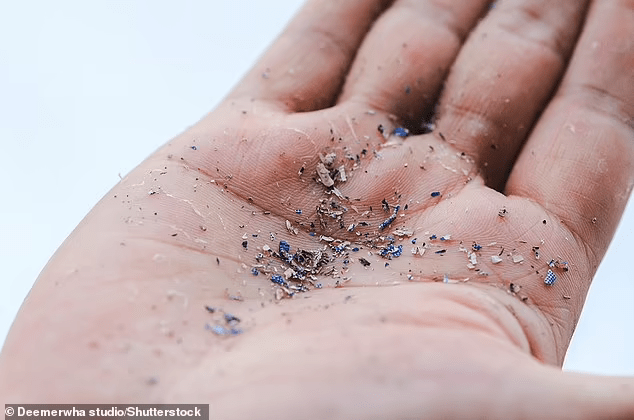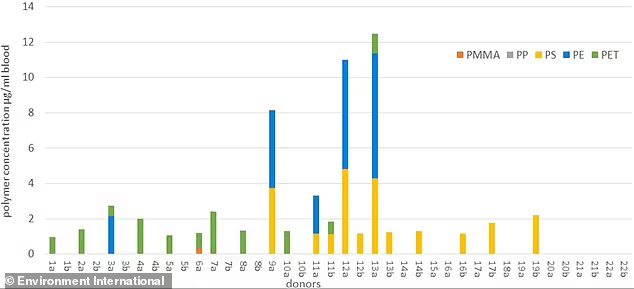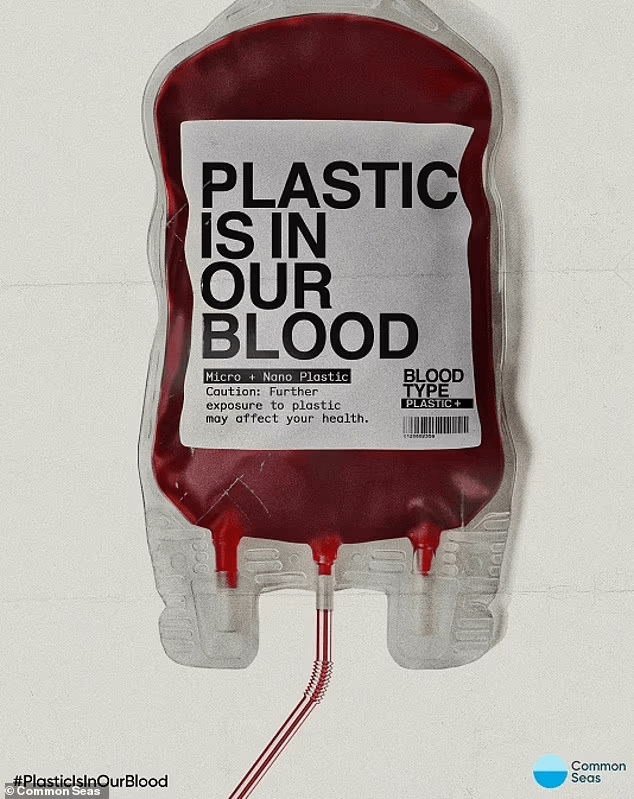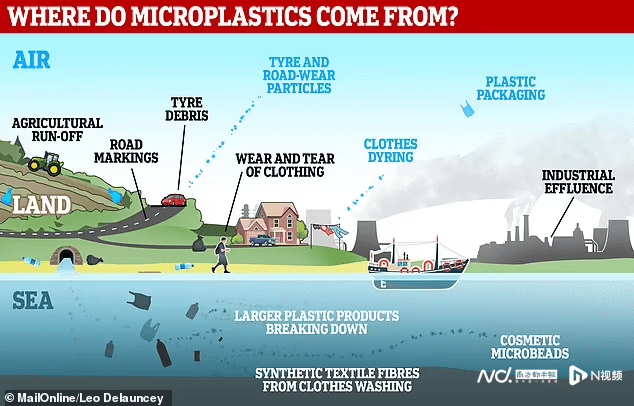Scientists have identified microplastics in human blood for the first time, a new study shows, warning that the ubiquitous particles could also enter all organs of the body.
According to Agence France-Presse reported on March 25, microplastics are defined as tiny plastic fragments less than 5 mm in diameter, originating from the 8 billion tons of plastic produced worldwide since the 1950s, of which less than 10% has been recycled. The rest will eventually break down, and the nearly invisible plastic particles have been found in nearly every corner of the planet, from the deepest oceans to the tallest mountains, as well as in the air, soil and food chains.

Microplastics are plastic fragments less than 5mm in diameter
On March 25, the latest issue of Environment International, a top journal in the field of environmental science and health, published a study from Vrije Universiteit Amsterdam in the Netherlands, which examined 22 anonymous blood samples from healthy volunteers and found that nearly 80% of the samples contained microplastics.
The study tested 5 plastics: polymethyl methacrylate (PMMA), polypropylene (PP), polystyrene (PS), polyethylene (PE) and polyethylene terephthalate (PET) .

This study tested 5 plastic ingredients
About half of the blood samples showed traces of PET plastic, which is widely used to make beverage and mineral water bottles. And more than a third of the blood samples contained PS, the plastic used in single-use food packaging and many other products.
Shockingly, the researchers found as many as three different types of microplastics in a single blood sample. The difference between blood with and without microplastics may have been due to exposure to plastics before blood samples were taken. For example, a volunteer who tested positive for microplastics in his blood may have recently drank coffee from a plastic cup.

Some previous studies have found microplastics in the brain, gut, placenta of unborn babies, and in adult and infant feces, but never in blood samples.
"This is the first time we've actually been able to detect and quantify this microplastic in human blood," said Dick Vethaak, an ecotoxicologist at Vrije Universiteit Amsterdam. "It's proof that humans have plastic in their bodies, and we shouldn't be doing that."
Visak called for further research to investigate the health effects of plastic. "Where does it get into your body? Can it get eliminated? Can it get out of the body? Or does it stay in certain organs, where the buildup can even pass the blood-brain barrier?" he issued a series of questions.
Microplastics may enter the body through many routes: through air, water or food, but also through certain products such as toothpaste, lip gloss and tattoo ink, the study said. The study argues that, in theory, plastic particles could be transported into organs through the bloodstream.

Microplastics are found in almost every corner of the world
The research was funded by the Netherlands Organisation for Health Research and Development and Common Ocean UK. Common Ocean UK advocates for reducing plastic pollution. Alice Horton, a scientist at the UK's National Oceanographic Centre who studies man-made pollutants, said the study "unequivocally" demonstrated the presence of microplastics in the blood.
"This study provides evidence that plastic particles are not only found throughout the environment, but also permeate our bodies," Horton told the Science Media Centre.
Fay Couceiro, a senior lecturer in biogeochemistry and environmental pollution at the University of Portsmouth, UK, said that despite the small sample size and lack of data on the exposure levels of the test participants, she believed the study " Very persuasive and stand up to scrutiny.”
Cucero also called for further research, "after all, blood connects all the organs in our body, and if plastic is there, it could be anywhere in our body."
The health effects of ingesting microplastics are unclear, although studies claim it can cause cell death and allergic reactions in humans. According to another study in 2021, microplastics can cause intestinal inflammation, disturbance of the gut microbiome and other problems in animals, and it may lead to inflammatory bowel disease in humans. Another study published last year found that microplastics can deform human cell membranes and affect their function.
Southern Metropolis


 Deutsch
Deutsch русский
русский español
español العربية
العربية 日本語
日本語 한국의
한국의









 SUPPORT 24/7
SUPPORT 24/7 BUSINESS QUIRY
BUSINESS QUIRY Our ADDRESS
Our ADDRESS  Leave A Message
Leave A Message
 IPv6 network supported
IPv6 network supported





